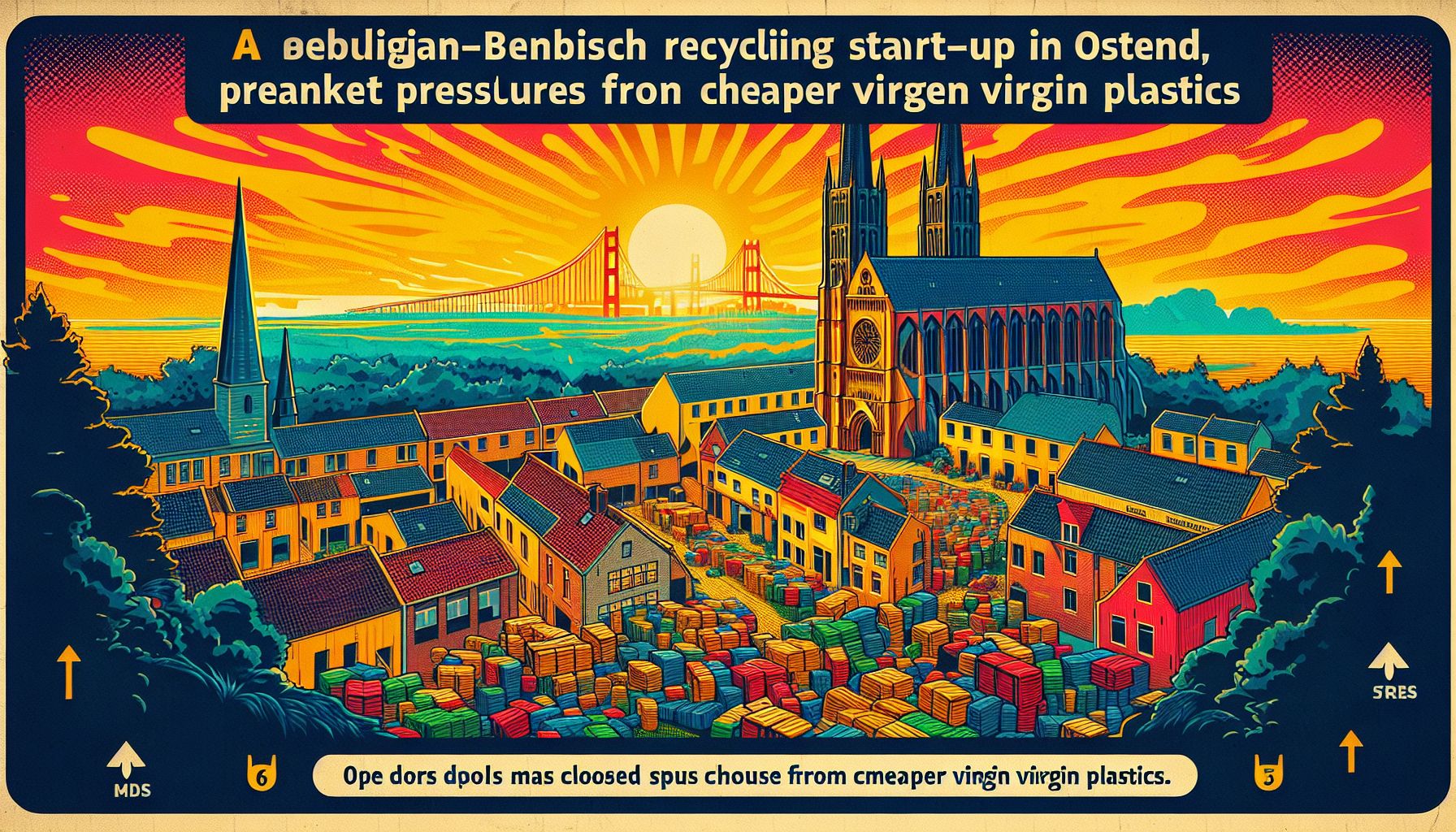Market Pressures Halt Innovative Plastic Recycling Project in Belgium

Rotterdam, Friday, 17 January 2025.
A Belgian-Dutch start-up abandoned its recycling facility plans in Ostend, Belgium, due to competition from cheaper virgin plastics, exemplifying the challenges within Europe’s recycling sector.
Project Scale and Initial Promise
Advanced Plastic Purification International had ambitious plans to process 500000 tons of plastic waste annually at their proposed facility [1]. The project had reached advanced stages of development, with completed construction plans and environmental permit applications in progress [1]. This initiative represented a significant step toward sustainable waste management in the Benelux region.
Market Pressures from Global Competition
The project’s downfall primarily stemmed from market dynamics, specifically the influx of cheaper virgin plastics from China [1]. As Port Oostende CEO Dirk Declerck explained, ‘The market was flooded with these cheap materials. When recycled products become more expensive than virgin plastics, the business case collapses’ [1]. This price pressure has created a challenging environment for European recycling initiatives [1].
Wider Industry Impact
This cancellation is not an isolated incident but part of a broader trend affecting the recycling sector. Several Dutch recycling companies, including Blue Cycle, Umincorp Polymers BV, Vinylrecycling, and Stiphout Plastics, have recently filed for bankruptcy [1]. The situation highlights a critical challenge in sustainable industry development, where environmental innovation struggles against market economics.
Future Implications and Potential Solutions
The recycling industry’s struggles come at a crucial time when raw material usage in the Netherlands continues to rise, increasing dependency on imports [2]. Industry stakeholders and environmental organizations are advocating for protective measures, including stricter import duties on non-European virgin plastic and potential subsidies or tax breaks for European recyclers [1]. According to the Netherlands Environmental Assessment Agency (PBL), successful reduction of raw material usage will require a comprehensive approach combining recycling with circular design and other innovative solutions [2].

